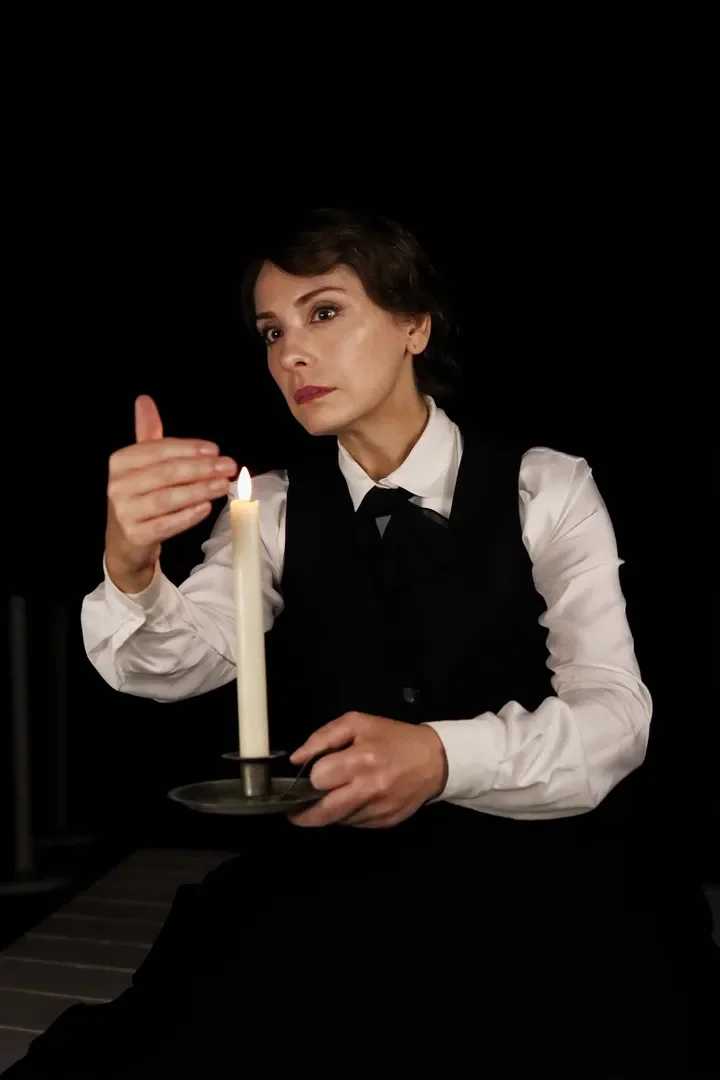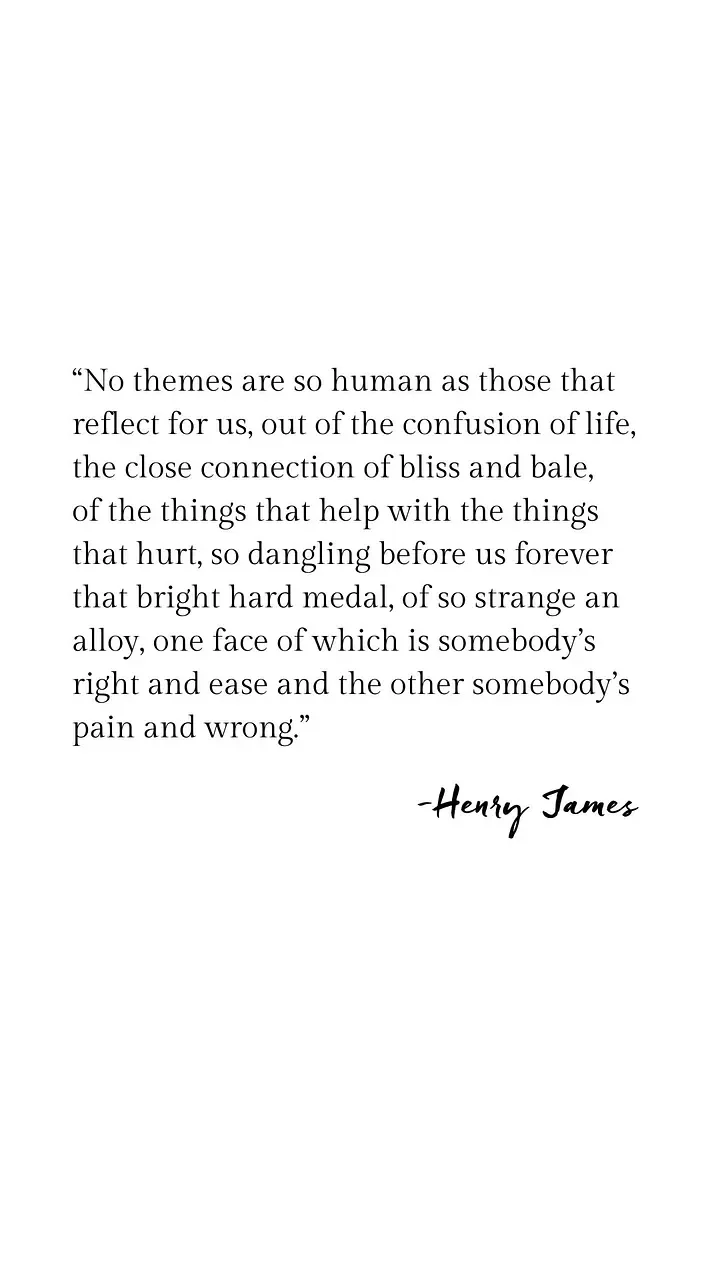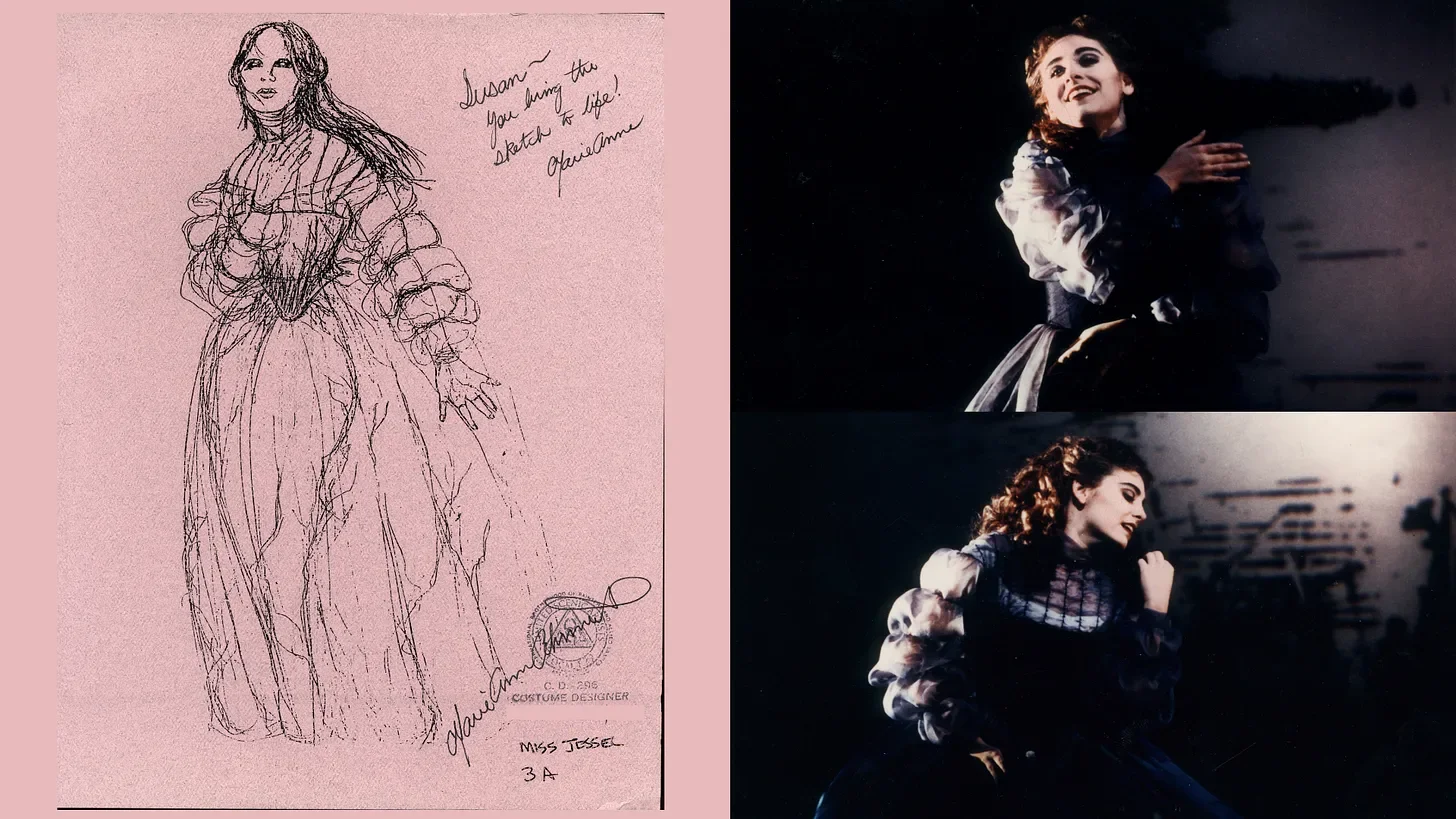On How We Puzzle It Out, Together.
“Theatre gives the beloved community a place to see the world as it is, dream what it could be, and find the inspiration to get there.” Uplifting, isn’t it? I wrote this for a social media post to celebrate the closing of a musical I’ve been doing for the last few months. It’s a setting of Henry James’s novella The Turn of the Screw, and if you know the book, you know “uplifting” is not a word that pertains.
I often summon John Lewis’s beloved community when I feel unmoored, and closing a show will unmoor you; I was not looking forward to getting back to the world —a place also lacking in uplift these days. But I had just written that post about how we would do well to be more like theatre people, and so I shall dig a little further into the darkness of our Turn of the Screw to shed a little light on the situation.
We go to the theatre for community, for escape, for a fun night out, sure. But theatre also shows us who we are—the beauty, the mess, the hope. And when the musical in question is this one (adapted by Matt Conner and Stephen Gregory Smith), that reflection becomes a particularly strange and beautiful mirror—one that, true to James’ vision, refuses to give easy answers.
This is my third time around with this tale, so here’s a summary for the uninitiated: a newbie governess (that was me) gets a position on a remote estate caring for two orphaned children; there may or may not be ghosts, and things deteriorate brutally from there. Our theatre’s copy described it as “a psychological thriller that explores the terrifying space between what is real and what is imagined.” James called the story a potboiler when he first penned it but came to be quite proud of the ambiguity of that terrifying space. We referred to it as “the Henry James of it all.”
So what were people coming to see? (P.S. We sold quite well.) October macabre? A new musical work? Friends in shows, shows written by friends? (Of course.) We hope one or all piqued interest. But there was something deeper on offer here.
I mean, the book is devastating, therefore so is the musical. I will tell you that by the end of the play, the audience is left with nothing. The children are charming and imaginative, but the boy Miles has been expelled, and the girl is lovely—until she isn’t. The housekeeper is all bustle and warmth but is forever withholding. And the ghosts—do they want the children? Each other? Are they even there? Tragedy has ensued, but no one can really say why or how, or whether it really happened at all. Who was right, wrong, sane or mad, good, bad?
There is a deafening silence onstage where we would like the answers to be. (And so, too, our world.)
Of course, the irony of this is that no character ever stops talking, or in this case, singing—me especially. Any scholar of James knows this is correct: he is famous not just for his seriously long and majestically constructed sentences—some of them cover pages—but for how those sentences reveal a character’s thought process. The Turn of the Screw is narrated from the Governess’s point of view, and we know every thought she turns over in her head onstage, too. She believes that she must save the children and herself, but save them from what, exactly? James never confirms.
It’s quite possible that our heroine is not of sound mind. She could absolutely be losing it - poor woman can’t get a straight answer out of anyone around her, and that’s enough to drive you nuts. But I also think that she’s not . She’s working so hard to get to the truth, to save, to fix, to return all to “rights”—that she can’t hear a thing. How I often wish that the Governess was actually listening—really hearing what is being said by the others. Who knows? That dreadful ending might be averted.
Photo by Elena Zimmerman; words by Henry James
This production photo was taken early in our process by a lovely young artist/director/actor named Elena Zimmerman—she is linked here. As I look back it seems…correct. Emily Dickinson wrote, “I am out with lanterns, looking for myself.” (Dickinson—incidentally, or maybe it’s string theory; you decide—is an upcoming project for me - thank you Matt and Stephen.) And that’s what this piece has felt like amid the constant onstage confusion: an intense, almost desperate search for meaning, for grace, for light.
The tragedy lies in the misreading, the mishearing, the misunderstanding of others’ words, intentions, needs and hearts—which leads to destruction both in the play and, as we are finding out, in our society. We are separated from one another; just choose your version of disconnect: politics, religion, higher education. And it seems that quite often the misunderstanding is willful, “misunderstood” on purpose to confuse issues and obfuscate—we are inundated with screed against what was thought to be our joint moral compass. We must assign good or bad, right or wrong. You are not like me therefore you do not deserve…fill in your need of choice. For all of the chatter and invective, there is so much silence among us. Our “shows” keep closing.
But the most extraordinary thing happened at performances (this is the uplift you’re waiting for): this play got people talking and listening. There was a constant conversation—every audience member had their opinion, and I mean detailed, well-thought-out opinion—about what happened. But not one person was determined to be right; everyone wanted to know what their neighbor thought. They exhorted the writers, and the cast, for their point of view. There was discussion at talkbacks, in the lobby, on the way to the garage. It was fascinating. Like the Governess, they never stopped talking! Yes, AND—they listened. You could feel audience members buzzing with curiosity and interest, and not one person said to another: You. Are. Wrong. They puzzled it out, together.
I think Henry James would be thrilled with this turn of events. For him, the ghosts and the madness were the way to draw in the audience; to decide, ultimately, who’s good, who’s bad, who’s sane, who’s not was never his goal. And look, I’m not saying we all have to get along; I’m angry, frustrated, fearful and terribly sad every day. I’m not saying there aren’t evil doings out there, and folks who wish deep and terrible harm. Maybe they all need theatre subscriptions. But I am saying that conquering the terrible harm can only be accomplished by coming together.
So go to the theatre—for fun and uplift, but also for understanding. Go to see us all - you, “them,” the beloved community—reflected from the boards. As an audience we are always charged with the take-away: ask questions and listen to the answers. We have more agency when we pay attention to the beauty and to the mess.
And I think there is reason to hope—yes, even at a downer of a musical. There are a lot of people at the theatre (or wherever you gather) with their lanterns, and I wager they’d like to share their light with you.Go before the shows close.
More on the subject :
✨Read TS Eliot’s poem “Little Gidding” from his Four Quartets.
“Of things ill done & done to others’ harm / Which once you took for exercise of virtue.”
(And P.S. while the governess is just “the Governess” in the book, in the film version The innocents, starring Debra Kerr, her name is Miss Giddens. So too Conner & Smith’s musical.)
✨Listen to Emma Thompson read the story. Life-changing stuff.
✨Also read The Second Coming by WB Yeats:
The blood-dimmed tide is loosed, and everywhere
The ceremony of innocence is drowned;
The best lack all conviction, while the worst
Are full of passionate intensity.
✨Then listen to Benjamin Britten’s beautiful opera. That “ceremony of innocence” line will haunt your dreams.
Speaking of the opera, the first time I got lost in this story I sang the role of the ghost, Miss Jessel. It was at the Manhattan School of Music, conducted by the storied opera conductor Julius Rudel. Rudel had fled fascism and Nazis in Austria (what’s that about immigrants???) and went on to lead the New York City Opera; he was also the inaugural artistic director of the Kennedy Center (don’t get me started). He lifted up so many works and composers and singers that influenced me deeply: Blitzstein, Bernstein, Sills; he even got a Tony nomination for conducting a musical! (gasp!). I was so young I had no understanding of his greatness at the time; now I almost lose my breath when I look back. Also, this costume…
✨And finally, you can listen to Conner & Smith’s version of the musical. We recorded it with the original cast when it was first mounted 10 years ago - listen for the storied Sherri Edelen and now-rising star Ethan Miller. If you’re a theater looking for a work with a small cast and small orchestra that’s open to interpretation, get in touch with Matt and Stephen here: https://connersmithmusicals.com/.
✨Looking for lanterns? Go here to find out what’s playing on the DC boards.
✨And for the curious, this is what I'm doing next: I’m the Cabaret Artist-in-Residence at the Cauldron—exciting!—and the Residency opens on December 10 during the theatre’s holiday cabaret series. Follow me here or get on my mailing list for more; I’d love to see you there. ✨


